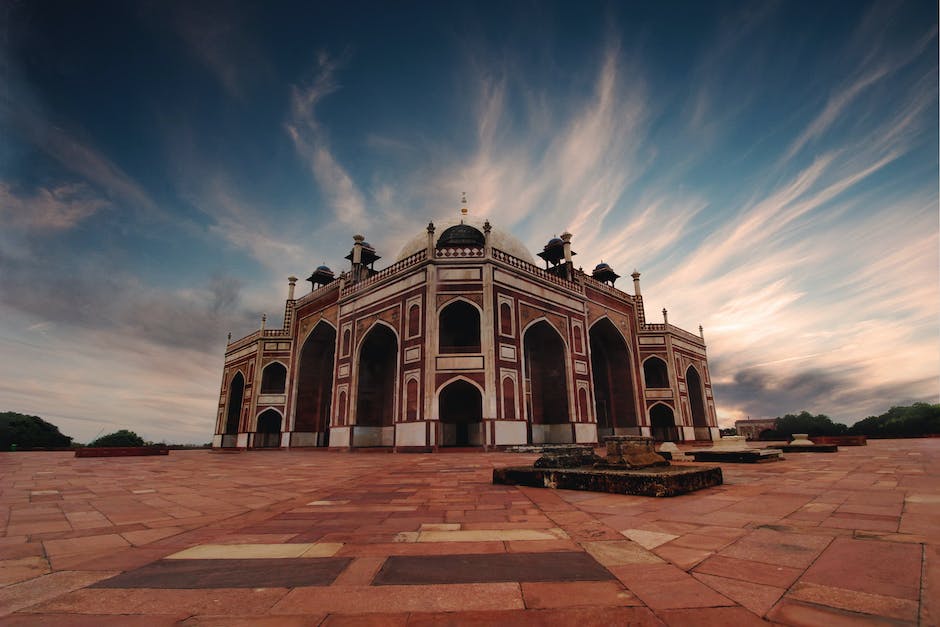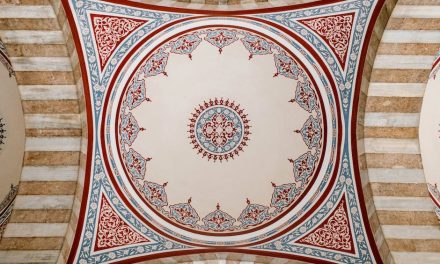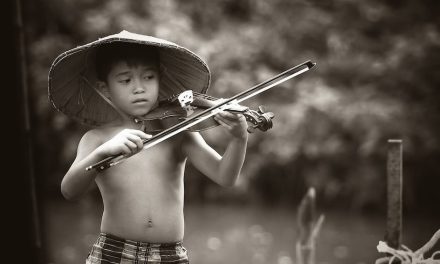Table of Contents
Reviving Arab Heritage: Preserving the Past, Shaping the Future.
Introduction
Reviving Arab Heritage: The Role of Cultural Leaders
Cultural heritage plays a vital role in shaping the identity and preserving the rich history of any society. In the Arab world, where a diverse range of cultures and traditions exist, the revival and preservation of Arab heritage have become crucial. Cultural leaders have emerged as key figures in this endeavor, taking on the responsibility of safeguarding and promoting Arab heritage. This article explores the significant role cultural leaders play in reviving Arab heritage, highlighting their efforts in preserving traditional arts, languages, customs, and historical landmarks. By actively engaging in cultural preservation and education, these leaders contribute to the revitalization and appreciation of Arab heritage, ensuring its continuity for future generations.
The Importance of Preserving Arab Heritage in a Globalized World

Reviving Arab Heritage: The Role of Cultural Leaders
In today’s globalized world, the preservation of cultural heritage has become more important than ever. As societies become increasingly interconnected, it is crucial to safeguard and revive the unique traditions, customs, and values that define a particular culture. This is particularly true for Arab heritage, which holds a rich and diverse history that spans thousands of years.
Arab heritage encompasses a wide range of elements, including language, literature, music, art, architecture, and cuisine. These cultural expressions are not only a source of pride for Arab communities but also serve as a bridge between the past and the present, connecting generations and fostering a sense of identity and belonging.
However, the rapid pace of globalization and the influence of Western culture have posed significant challenges to the preservation of Arab heritage. As young Arabs are exposed to new ideas and lifestyles, there is a risk of losing touch with their own cultural roots. This is where cultural leaders play a crucial role in reviving and promoting Arab heritage.
Cultural leaders, including artists, writers, musicians, and scholars, have the power to shape public opinion and influence societal norms. By actively engaging with Arab heritage, they can inspire others to appreciate and embrace their cultural identity. Through their work, cultural leaders can create a sense of pride and belonging among Arab communities, encouraging them to preserve and celebrate their heritage.
One way cultural leaders can revive Arab heritage is through the promotion of traditional arts and crafts. By showcasing the beauty and craftsmanship of traditional Arab pottery, calligraphy, weaving, and embroidery, they can generate interest and appreciation for these ancient art forms. This not only preserves the skills and techniques passed down through generations but also provides economic opportunities for artisans and craftsmen.
Literature and storytelling also play a vital role in preserving Arab heritage. Cultural leaders can write and publish books that explore Arab history, folklore, and mythology, ensuring that these stories are not forgotten. By making these narratives accessible to a wider audience, cultural leaders can foster a sense of pride and curiosity about Arab heritage, encouraging further exploration and research.
Music and dance are another powerful medium through which cultural leaders can revive Arab heritage. By composing and performing traditional Arab music, they can keep ancient melodies and rhythms alive. Similarly, by teaching and showcasing traditional Arab dances, cultural leaders can ensure that these art forms are passed on to future generations.
Furthermore, cultural leaders can use their influence to advocate for the inclusion of Arab heritage in educational curricula. By working with policymakers and educators, they can ensure that Arab history, language, and culture are taught in schools. This not only provides young Arabs with a deeper understanding of their heritage but also fosters a sense of pride and belonging.
In conclusion, the preservation of Arab heritage is of utmost importance in today’s globalized world. Cultural leaders play a vital role in reviving and promoting Arab heritage by showcasing traditional arts and crafts, preserving literature and storytelling, and promoting traditional music and dance. By actively engaging with Arab heritage, cultural leaders inspire others to appreciate and embrace their cultural identity, fostering a sense of pride and belonging among Arab communities. Through their work, cultural leaders ensure that Arab heritage continues to thrive and evolve, connecting generations and preserving the unique traditions, customs, and values that define Arab culture.
Cultural Leadership and its Impact on Arab Heritage Revival
Reviving Arab Heritage: The Role of Cultural Leaders
Cultural leadership plays a crucial role in the revival of Arab heritage. Arab countries have a rich and diverse cultural heritage that spans centuries, encompassing art, music, literature, and architecture. However, in recent years, there has been a growing concern about the preservation and promotion of this heritage. Cultural leaders have emerged as key figures in this endeavor, working tirelessly to revive and safeguard Arab heritage for future generations.
One of the primary roles of cultural leaders is to raise awareness about the importance of Arab heritage. They do this by organizing exhibitions, festivals, and conferences that showcase the richness and diversity of Arab culture. These events not only provide a platform for artists and intellectuals to showcase their work but also serve as educational tools for the general public. By attending these events, people can gain a deeper understanding and appreciation for Arab heritage.
In addition to raising awareness, cultural leaders also play a crucial role in preserving Arab heritage. They work closely with museums, libraries, and other cultural institutions to ensure the proper conservation and documentation of artifacts and historical documents. This involves implementing best practices in preservation and restoration, as well as digitizing collections to make them more accessible to a wider audience. By preserving Arab heritage, cultural leaders ensure that future generations can learn from and be inspired by their rich cultural legacy.
Furthermore, cultural leaders are instrumental in promoting Arab heritage on an international level. They collaborate with cultural organizations and institutions from around the world to organize joint exhibitions and cultural exchange programs. These initiatives not only showcase Arab heritage to a global audience but also foster cultural dialogue and understanding between different civilizations. By promoting Arab heritage internationally, cultural leaders contribute to the enrichment of global cultural diversity.
Another important aspect of cultural leadership is the role it plays in empowering local communities. Cultural leaders work closely with grassroots organizations and community leaders to develop cultural initiatives that are rooted in the local context. This includes supporting local artists and artisans, organizing community festivals, and providing training and educational opportunities. By involving local communities in the revival of Arab heritage, cultural leaders ensure that the process is inclusive and sustainable.
Moreover, cultural leaders also have a responsibility to address the challenges and threats facing Arab heritage. This includes tackling issues such as urbanization, globalization, and the impact of modernization on traditional cultural practices. Cultural leaders advocate for the integration of cultural heritage considerations in urban planning and development policies. They also work towards the recognition and protection of intangible cultural heritage, such as traditional music and oral traditions, which are often at risk of being lost.
In conclusion, cultural leadership plays a vital role in the revival of Arab heritage. Cultural leaders raise awareness about the importance of Arab heritage, preserve and promote it on an international level, empower local communities, and address the challenges it faces. Their efforts are crucial in ensuring that Arab heritage is not only preserved but also celebrated and passed on to future generations. By recognizing and supporting the role of cultural leaders, we can contribute to the revival and preservation of Arab heritage for years to come.
Strategies for Engaging Youth in the Revival of Arab Heritage
Reviving Arab Heritage: The Role of Cultural Leaders
Strategies for Engaging Youth in the Revival of Arab Heritage
In recent years, there has been a growing concern about the loss of Arab heritage and culture among the younger generation. With the rise of globalization and the influence of Western culture, many young Arabs are becoming disconnected from their roots. However, cultural leaders have a crucial role to play in reviving Arab heritage and engaging youth in the process.
One strategy that cultural leaders can employ is education. By incorporating Arab heritage into school curricula, cultural leaders can ensure that young Arabs are exposed to their rich history and traditions. This can be done through the inclusion of Arab literature, music, and art in the classroom. By making these subjects relevant and engaging, cultural leaders can spark an interest in Arab heritage among the youth.
Another strategy is the use of technology. In today’s digital age, young people are constantly connected to their smartphones and social media platforms. Cultural leaders can leverage this by creating online platforms and apps that provide information and resources about Arab heritage. These platforms can include interactive quizzes, virtual tours of historical sites, and access to digital archives. By making Arab heritage easily accessible and engaging through technology, cultural leaders can capture the attention of the youth.
Furthermore, cultural leaders can organize events and festivals that celebrate Arab heritage. These events can showcase traditional music, dance, and cuisine, providing a platform for young Arabs to experience and appreciate their culture. By creating a vibrant and inclusive atmosphere, cultural leaders can attract a diverse audience and foster a sense of pride in Arab heritage among the youth.
Collaboration is another key strategy for engaging youth in the revival of Arab heritage. Cultural leaders can partner with schools, universities, and community organizations to develop joint initiatives that promote Arab culture. This can include workshops, seminars, and cultural exchange programs. By working together, cultural leaders can reach a wider audience and create a sense of unity and shared responsibility in preserving Arab heritage.
Additionally, cultural leaders can mentor and support young artists and performers. By providing opportunities for young talent to showcase their work, cultural leaders can encourage creativity and innovation in the preservation of Arab heritage. This can be done through grants, scholarships, and mentorship programs. By nurturing young artists, cultural leaders can ensure the continuation of Arab traditions and inspire future generations to take pride in their heritage.
In conclusion, the revival of Arab heritage requires the active involvement of cultural leaders. By employing strategies such as education, technology, events, collaboration, and mentorship, cultural leaders can engage youth in the process of preserving and celebrating Arab culture. It is through these efforts that the younger generation can reconnect with their roots and develop a sense of pride and appreciation for their Arab heritage.
Collaborative Efforts: Building Partnerships for Arab Heritage Preservation
Reviving Arab Heritage: The Role of Cultural Leaders
Preserving and reviving Arab heritage is a crucial task that requires collaborative efforts from various stakeholders. Cultural leaders play a significant role in building partnerships for Arab heritage preservation. By working together, they can ensure the protection and promotion of Arab cultural heritage for future generations.
Cultural leaders are individuals who possess a deep understanding and appreciation for Arab heritage. They are experts in their respective fields, whether it be archaeology, history, or art. These leaders have the knowledge and skills necessary to identify, document, and preserve Arab cultural heritage.
One of the key roles of cultural leaders is to foster collaboration among different organizations and institutions. They act as facilitators, bringing together museums, universities, government agencies, and local communities to work towards a common goal. By building partnerships, cultural leaders can pool resources, share expertise, and coordinate efforts to preserve Arab heritage.
Collaborative efforts in Arab heritage preservation involve a range of activities. Cultural leaders organize joint research projects, where experts from different fields come together to study and document various aspects of Arab heritage. These projects help uncover hidden treasures, shed light on historical events, and provide valuable insights into Arab culture.
Another important aspect of collaborative efforts is the establishment of cultural exchange programs. Cultural leaders facilitate the exchange of artifacts, artworks, and exhibitions between different institutions. These programs not only promote Arab heritage internationally but also foster cultural understanding and appreciation among diverse communities.
Furthermore, cultural leaders play a crucial role in advocating for the protection of Arab heritage. They raise awareness about the importance of preserving cultural heritage and the threats it faces. Through public lectures, conferences, and media engagements, cultural leaders educate the public and policymakers about the significance of Arab heritage and the need for its preservation.
In addition to collaboration with institutions, cultural leaders also engage with local communities. They recognize the importance of involving communities in heritage preservation efforts. By working closely with local residents, cultural leaders ensure that heritage preservation is a collective endeavor. They empower communities to take ownership of their heritage, fostering a sense of pride and responsibility.
Cultural leaders also play a vital role in capacity building. They provide training and mentorship to young professionals and aspiring cultural leaders. By passing on their knowledge and skills, they ensure the continuity of heritage preservation efforts. This capacity building is essential for the long-term sustainability of Arab heritage preservation.
Moreover, cultural leaders actively engage with technology and innovation. They embrace digital tools and platforms to document and preserve Arab heritage. Virtual reality, augmented reality, and 3D modeling are some of the technologies used by cultural leaders to create immersive experiences and preserve heritage sites that may be at risk.
In conclusion, the role of cultural leaders in reviving Arab heritage is indispensable. Through collaborative efforts, they build partnerships with institutions, communities, and individuals to preserve and promote Arab cultural heritage. By fostering collaboration, advocating for protection, engaging with communities, and embracing technology, cultural leaders ensure the continuity and sustainability of Arab heritage preservation. Their dedication and expertise are crucial in reviving and celebrating the rich cultural heritage of the Arab world.
Q&A
1. What is the role of cultural leaders in reviving Arab heritage?
Cultural leaders play a crucial role in reviving Arab heritage by promoting and preserving cultural traditions, supporting artistic expression, and fostering a sense of pride and identity among Arab communities.
2. How can cultural leaders contribute to the preservation of Arab heritage?
Cultural leaders can contribute to the preservation of Arab heritage by organizing cultural events, exhibitions, and festivals, supporting research and documentation of traditional practices, and advocating for the protection of historical sites and artifacts.
3. What challenges do cultural leaders face in reviving Arab heritage?
Cultural leaders face challenges such as limited funding and resources, lack of public awareness and support, political instability, and the impact of globalization on traditional cultural practices.
4. What are the potential benefits of reviving Arab heritage?
Reviving Arab heritage can lead to a stronger sense of cultural identity, increased tourism and economic opportunities, preservation of traditional knowledge and skills, and the promotion of intercultural dialogue and understanding.
Conclusion
In conclusion, cultural leaders play a crucial role in reviving Arab heritage. Their efforts in preserving and promoting cultural traditions, arts, and historical knowledge contribute to the preservation of Arab identity and the enrichment of society. By fostering a sense of pride and appreciation for Arab heritage, cultural leaders help to ensure its continuity and relevance in the modern world. Through their initiatives, collaborations, and advocacy, cultural leaders have the power to revive and celebrate the diverse and rich Arab heritage for future generations.




